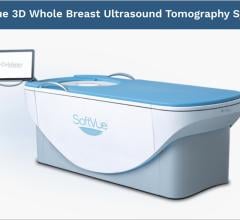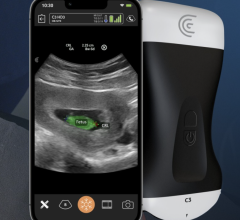
October 2, 2013 — To clear confusion, reduce unnecessary breast cancer deaths and help women avoid extensive treatment for undetected advanced cancers, the Mammography Saves Lives (MSL) coalition has launched a new series of television and radio public service announcements (PSAs) informing women ages 40 and older to get annual mammograms at nearby mammography centers.
“Despite the fact that mammography has helped reduce the breast cancer death rate by more than 30 percent since 1990 and every major medical organization experienced in breast cancer recommends annual mammograms for women 40 and older, many women are confused regarding when, or even if, they should get a mammogram. I strongly urge women to get annual mammograms starting at age 40. And I ask TV and radio stations nationwide to help us save lives by running these potentially lifesaving PSAs,” said Barbara S. Monsees, M.D., Fellow of the American College of Radiology (FACR), chair of the American College of Radiology Breast Imaging Commission.
The PSAs, featuring a physician and breast cancer survivor diagnosed in her 40s by mammography, urge women to receive mammograms annually at age 40 and refer them to mammographysaveslives.org, where they can:
- Find a nearby accredited mammography facility
- Access scientific information regarding breast density and how it affects mammograms and breast cancer diagnosis
- Hear leading breast cancer experts separate fact from myth and explain why they still recommend annual mammograms for women 40 and older
The MSL campaign, a coalition of not-for-profit, 501(C)(3) medical associations dedicated to improving breast cancer care, is comprised of the American College of Radiology, the Society of Breast Imaging and the American Society of Breast Disease.
“While we have saved and continue to save a significant number of women through mammography, a great many more breast cancer deaths could be avoided if more women would choose to begin annual screening at age 40. By not getting a yearly mammogram after age 40, women increase their odds of dying from breast cancer. And if cancer is found in women who have not had regular screening, the treatment is more likely to be more extensive and expensive than if found earlier by a mammogram,” said Murray Rebner, M.D., FACR and president of the Society of Breast Imaging.
PSAs can be viewed at http://digitalnewsrelease.com
For more information: www.mammographysaveslives.org


 July 29, 2024
July 29, 2024 








